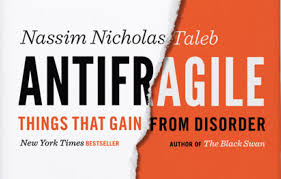The Lindy Effect concept apparently has its roots resulting from comedians meeting at Lindy’s Diner in New York in the 1960’s trying to figure out how long TV shows would last. They eventually hit upon the idea that unlike real life were new born physical life tends live longer that mature adults. TV shows tend to live longer if they have been around a few years, while new shows tend to be canceled rather quickly.

In Nassim Taleb’s 2012 book Antifragile: Things That Gain from Disorder Mr. Taleb explicitly referred to his idea as the Lindy Effect, and incorporated it into his broader theory of the Antifragile.”
By using the term Antifragile, Taleb makes the case that something that gets stronger from stress is the opposite of fragile, rather than something that simply will not break under stress. In other words, a coffee mug that is antifragile would become stronger every time it was dropped rather than simply not break. Very few things in our world work this way but those that do should be pursued. Obviously, something that is stronger after being stressed will last a long time. In other words, it meets the criteria for the Lindy effect.
Mr.Taleb give us the following quote which took my brain immediately to the world’s best-selling book!
“If a book has been in print for forty years, I can expect it to be in print for another forty years. But, and that is the main difference, if it survives another decade, then it will be expected to be in print another fifty years. This, simply, as a rule, tells you why things that have been around for a long time are not “aging” like persons, but “aging” in reverse.”
Indeed, the Bible meets the Lindy effect criteria and I dare say the 7 and 50 rhymes the bible contains will make its adherents antifragile. Therefore, I would propose that the Bible is the ultimate in terms of the Lindy Effect, its enduring quality is without a doubt second to none. Used properly biblical instructions have the ability to make every aspect of our lives antifragile.